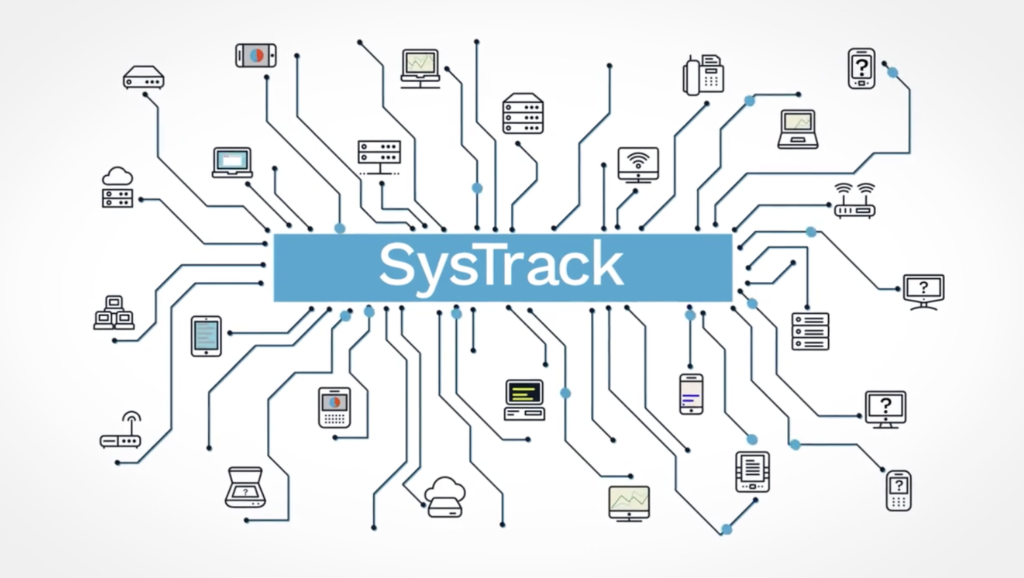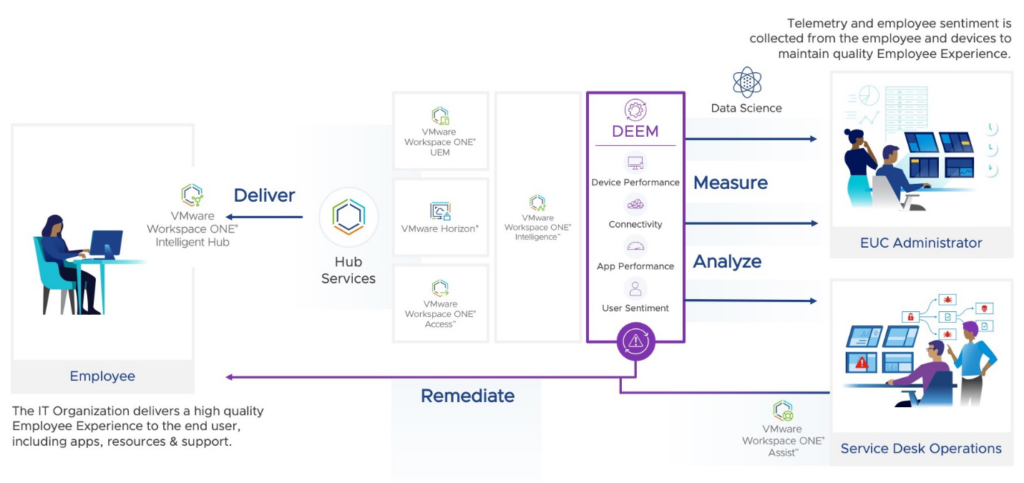
Since the first quarter of 2020, the IT landscape has drastically changed, leading to an all-time high in remote work trends and expectations. Businesses are now working on improving employee experiences and digital well-being through technology. This shift has fueled the growth and importance of digital employee experience (DEX) for improved productivity and efficiency.
In this article, I’m going to discuss what digital employee experience is and go through its importance, benefits, and challenges. I’ll also cover how you can build a better DEX for your employees and highlight a few software solutions near the end of the article.
What Is Digital Employee Experience?
Digital employee experience (DEX) is a strategy that focuses on improving the overall employee experience through using technology within a business.
Basically, this strategy reflects how employees interact with their existing workplace tools. In turn, it helps you streamline the overall process of employees relying on technology. DEX also increases productivity and efficiency.
But is DEX worth investing in? In this next section, I’ll discuss why digital employee experience can be important for your business.
Why You Should Invest in Digital Employee Experience
Generally, businesses with a positive DEX have a healthy work culture. As a result, they can achieve business objectives more efficiently. A well-defined digital employee experience also increases employee retention rates. That’s because your DEX can empower employees to adapt to the modern working paradigms involving remote, on-site, on hybrid work.

Additionally, DEX provides employees with the tools to perform their everyday duties, through well-curated workflows. Investing in DEX can also improve several core aspects of the business, such as the HR systems and learning and development.
Next, let’s look at some of the benefits of the digital employee experience to understand its importance and the value it can add to your business.
Digital Employee Experience Benefits
As mentioned above, designing and implementing a strong digital employee experience strategy can benefit your business in multiple ways. For instance, it can result in a strong work model that can enable your business to tackle disparate challenges associated with remote working.
But let’s take a look at some other benefits of a strong digital employee experience strategy, with some proven stats based on a report by 1E:
- Makes your business 6x more resistant to handling any disruptions in the digital employee experience
- Boosts employee satisfaction immensely
- Enables you to build robust employee onboarding and offboarding pipelines
- Aids you in better talent acquisition
- Helps foster a healthy and appealing work-life balance for your employees
- Enables you and your business to gather more real-time insights from the tools and services set in place for various employee tasks
- Improve overall employee well-being and reduces absenteeism
- Helps you scale your business and gain flexibility in doing so
- Reduces operational costs and increases business revenues
On the flip side, your business may run into certain challenges when creating a digital employee experience. I’ll go over those now.
Digital Employee Experience Challenges
As mentioned, certain challenges might hinder your business’s implementation of a digital employee experience. Here are some of them to consider.
Cost
Setting up a mature and strong digital employee experience strategy can be quite costly for businesses. It’ll take upfront costs, maintenance, and possibly even a subscription fee for some of the tools required.
Choice of Technology
With multiple vendors and cloud services in the market that can help you set up DEX, it can get difficult to choose the right set of services that tailor-meets your business’s requirements. Moreover, the ever-changing digital landscape adds further complexity when choosing the right tech stack.

Resistance to Change
Like every new service or tool, DEX also involves installing and setting up new tools and applications, which equates to training and learning curves. Moreover, setting up DEX might involve you getting approvals from all the stakeholders and employees who could pose resistance to change.
So how can you overcome these challenges? The next section has you covered.
5 Steps to Implement Digital Employee Experience
I can’t give you a perfectly defined process to help you build a mature digital employee experience. But the 5 steps below will help you build a good DEX foundation for your business. This should hopefully help you overcome some of the challenges associated with DEX.
1. Set up a Plan Based on the End Results
Setting up a plan for your business can be a long process involving several changes during and after its implementation. As a business, it’s beneficial for you to set up your plan for adopting and implementing DEX across the firm based on the results you expect to see. Derive those data points, build a plan around them, and strategize to implement a digital employee experience.
2. Define Your Requirements
Once you’ve drafted your high-level plan, work on your requirements. These might vary for different teams or departments within your business. Perform user reviews, questionnaires, and surveys with your employees and stakeholders to get insights. You can then pair these insights with the organizational policy to define and structure the specific requirements.
3. Choose the Right Tech Stack
Choosing the right tech stack that you and your business can adapt and work with is one of the most crucial aspects of defining the digital employee experience within your firm. You have plenty of tools and services to consider, but only a few options may be compatible with your existing tools. As such, consider the integrations, data and service reusability, and compatibility when choosing these tools and services.
4. Plan Training Sessions
Once you have the right tools and services in place, you must plan regular training sessions. These sessions ensure that your workforce makes the most of the DEX and its associated tools and services. Training also helps employees transition to the newer work models and adapt to the applications.
5. Set up Metrics and Constantly Improve
As mentioned earlier, you’ll need to constantly evaluate and revise your DEX strategy due to the rapidly changing technology. After implementing DEX, you can set up metrics and Service Level Agreements (SLAs). After that, you can compare these metrics to previous ones without the tools. These metrics give a holistic idea of how well your DEX strategy works, and you’ll know if it needs any changes down the road.
Now, without further ado, let’s look at some of the top tools in the market that can help you build a strong DEX plan.
Here are the top 3 tools you can leverage today to bolster or set up your business’s digital employee experience strategy.
1. Sococo

Sococo is a cloud-based collaboration-centric solution that enables better connections and collaboration between virtual and in-office teams. It provides virtual avatars and office spaces that allow users to feel digitally connected while working remotely. It also includes virtual meeting rooms, virtual desks, video chatting, screen sharing, and more.
Pros
- Has a long list of immersive features in Metaverse, supporting collaboration
- Enables better communication
- Provides sturdy conferencing features
Cons
- Lacks a variety of customization options due to it being a new solution in the market
2. SysTrack

SysTrack by Lakeside is a robust application that serves as a performance monitoring and observability tool. It’s a great choice for everyday operations within your business and can help you determine the root causes of many issues. Systrack can also capture data from CPU, memory, disk, and 10,000+ other data points in your business. Finally, it allows you to manage your organizational end-user estate with a reliable and measurable user experience.
Pros
- Collects data from several major operating systems
- Contains out-of-the-box automation capabilities
Cons
- Involves a learning curve due to its not-so-intuitive UI
3. VMware DEX

VMware’s DEX solution helps you measure workspace efficiency to deliver a better employee experience. To do that, the system analyzes your existing processes and tools. This holistic solution can also help you streamline your everyday business operations, including configuring and working with a single sign-on, resource management, configurational issues, IT support issues, and more.
Pros
- Helps reduce the time required for issue resolution
- Helps maintain security and consistency across your business
- Boosts overall productivity and efficiency of your teams
Cons
- Has a high cost, which can be an issue for some SMBs
Those are the 3 best DEX tools available in the market now. Consider choosing the one that best fits your business’s needs and requirements. Let’s wrap up.
Final Words
To tackle the modern challenges associated with the move to remote working, businesses must invest in a strong and mature digital employee experience program. DEX helps you adapt to the new normal working paradigm worldwide and enables you to achieve improved productivity and efficiency. As outlined above, you have plenty of benefits to consider, and some software solutions can help you easily implement DEX in your business. I hope this article gave you some insights into how DEX can bolster your overall employees’ digital well-being.
Do you have more questions about the digital employee experience? Check out the FAQ and Resources sections below!
FAQ
What is digital well-being?
Digital well-being is a term used to describe the impact technology, tools, and software services make on people’s physical, mental, emotional, and social health. DEX is a core promoter of digital well-being.
What is resource management?
Resource management refers to various ways and techniques businesses use to manage their resources effectively by planning, allocating, scheduling, and handling them. This involves resources from different vertices of the business, including financial, IT, employees, skill, and production resources.
How can I adapt to a hybrid work model?
You must focus on creating a community by identifying the right resources and people as a business. You also need to focus on employee engagement and provide them with the right tools and services to work remotely and achieve the productivity and efficiency required. A DEX strategy can also be crucial in setting up your hybrid work model.
What is the Metaverse?
The Metaverse is a virtual reality space in which users can communicate, collaborate, and interact with each other virtually. It has been gaining traction due to the ongoing pandemic. Several DEX tools, such as Sococo, are fully built to provide better collaboration virtually.
Is DEX the future of remote working?
Digital employee experience is a holistic strategy integral to the remote working culture. It can help bridge the gaps between your employees and all the tools and services they interact with to perform their everyday tasks. In a sense, it’ll have a long-lasting impact on the remote working scene.
Resources
TechGenix: News
Explore all the trending and latest tech-related news and announcements in the IT enterprise world.
TechGenix: Article on COVID’s Positive Impacts on Technology
Discover and learn more about all the positive impacts that COVID has on technology.
TechGenix: Article on COVID-Driven Cybersecurity Challenges
Learn more about all the COVID-related cybersecurity challenges and risks.
TechGenix: Article on Business Productivity and IT Security Controls
Educate yourself on achieving the right balance between several IT security controls and business productivity.
TechGenix: Article on the Best Remote Work Collaboration Tools
Here are the top picks among several collaboration tools to boost your productivity.

